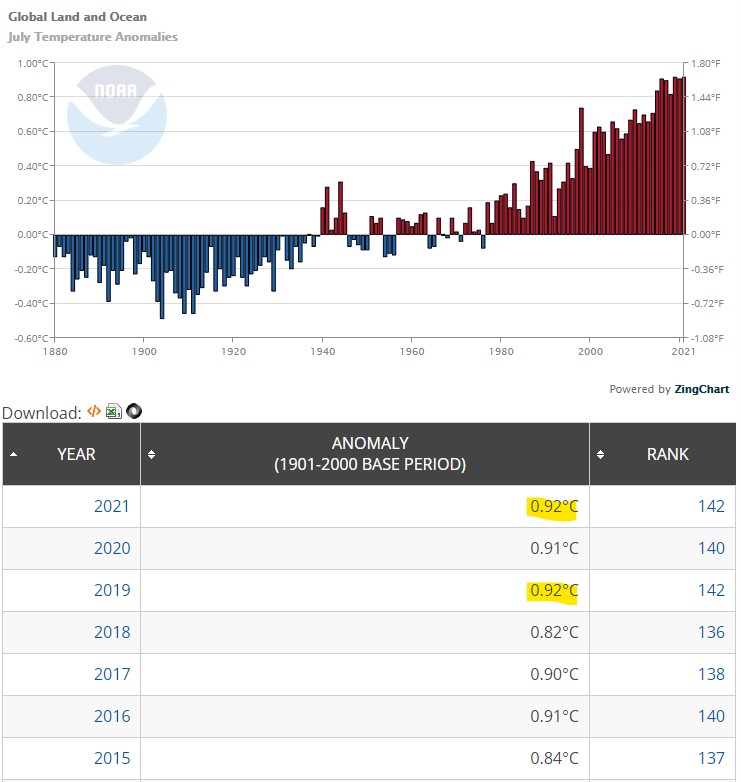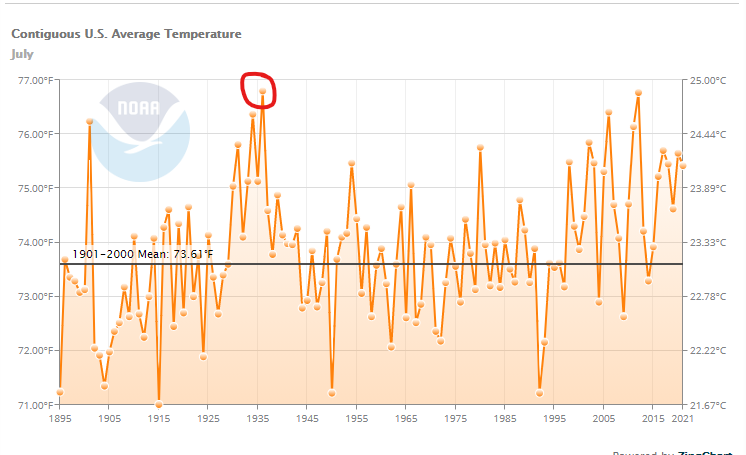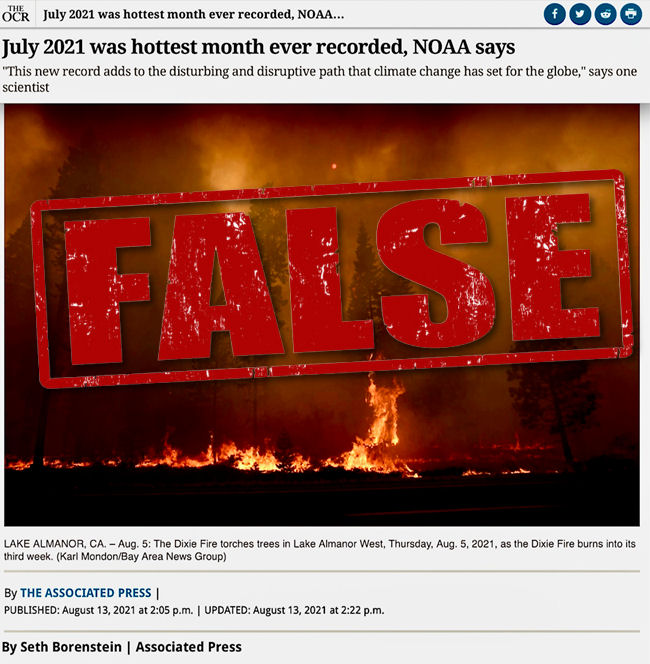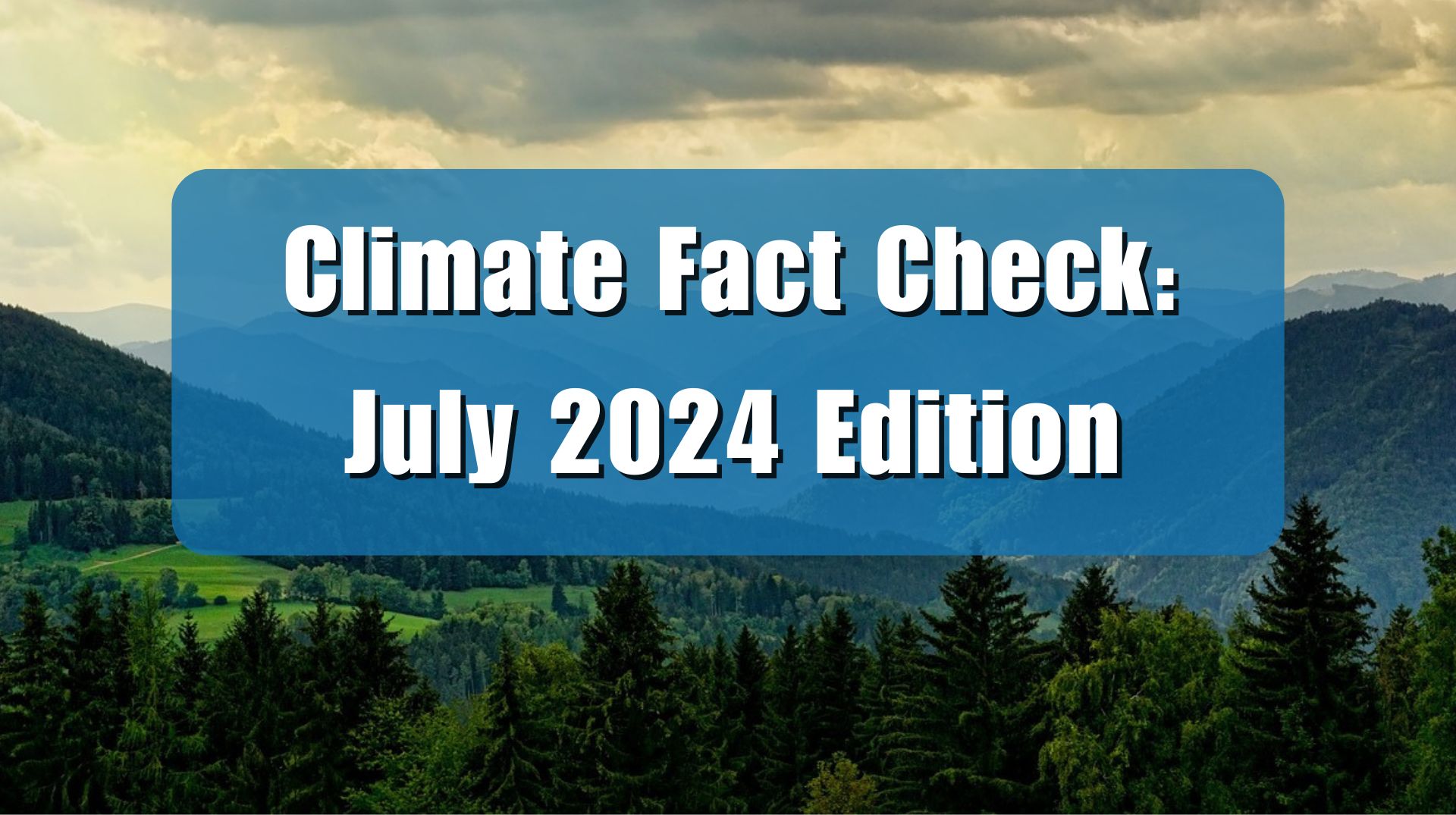Recently dozens of mainstream media outlets have been regurgitating a claim made in a press release from the National Oceanic and Atmospheric Administration (NOAA) that July 2021 was the hottest month ever recorded. This claim is no longer supported by NOAA’s own data and is likely false.
“July 2021 has earned the unenviable distinction as the world’s hottest month ever recorded, according to new global data released today by NOAA’s National Centers for Environmental Information,” said NOAA’s press release. “’[I]n this case, first place is the worst place to be,’ said NOAA Administrator Rick Spinrad, Ph.D. ‘July is typically the world’s warmest month of the year, but July 2021 outdid itself as the hottest July and month ever recorded. This new record adds to the disturbing and disruptive path that climate change has set for the globe.’”
The Associated Press turned NOAA’s press release into the headline, “Global sizzling: July was hottest month on record, NOAA says.”
The “global sizzling” is a false alarm, used to describe a miniscule 0.01 degree temperature increase over previous Julys on record, a measured increase well beneath the margin of error for atmospheric temperature measuring devices.
NOAA’s press release said (emphasis mine):
“[T]he combined land and ocean-surface temperature was 1.67 degrees F (0.93 of a degree C) above the 20th-century average of 60.4 degrees F (15.8 degrees C), making it the hottest July since records began 142 years ago. It was 0.02 of a degree F (0.01 of a degree C) higher than the previous record set in July 2016, which was then tied in 2019 and 2020.”
The four other major global temperature measurement systems including satellite systems UAH and RSS and surface measurement systems GISS and HadCRUT demonstrate NOAA’s data set is an isolated outlier.
The UAH, RSS, GISS and HadCRUT global temperature monthly anomaly measurement systems show the highest July occurred in years 1998, 2020, and 2019 respectively, not year 2021 as NOAA claimed.
NOAA’s “July hottest month ever” claim is based on a trivial 0.01° C increase above the prior July NOAA peak monthly anomaly temperatures measured by NOAA in 2020, 2019 and 2016.
The published accuracy of NOAA’s data is +/- 0.19° C. This is nearly 20 times greater than the miniscule 0.01° C temperature anomaly difference between July 2021 and July 2020, 2019, and 2016. The difference between these July temperature anomaly measurements is virtually immeasurable and scientifically insignificant.
Evidence that NOAA’s announcement was more about grabbing headlines and stoking fear about climate change than accurately reporting measured temperatures comes from the fact NOAA subsequently, and quietly, adjusted it temperature data downward. It seems NOAA’s announced “hottest ever” claims were based on “preliminary” data.
On September 14, NOAA updated its July 2021 data. The final data reduced the July 2021 temperature anomaly value by 0.01 degrees C, as seen in the screen capture below.

This new data wiped out the entire increase that purportedly made July 2021 the hottest month ever.
While that data is for the world, according to data for the United States, July 2021 wasn’t anywhere near a record as seen in Figure 2.

July 1936 (circled in red) still holds the record for the warmest month of July by a wide margin at 76.80°F, with July 2021 coming in at 75.42°F. You can see the data for yourself here. Meanwhile, the headline graphic at the top of this article from the Orange County Register gives the false impression that “hottest ever” July applied to the United States by featuring a photo of the DixieFire near Lake Almanor, CA.
NOAA didn’t put out a press release retracting its previous claims and there have been no subsequent headlines notifying the public that NOAA’s initial announcement was wrong. This is what passes for science these days at NOAA and science reporting at mainstream media outlets.
Don’t hold your breath waiting for NOAA and compliant media outlets to make a correction announcement – there won’t be any.

















YOU ARE OUR HERO!!!!!!!!!!!
KEEP IT UP!!!!!!
LARRY